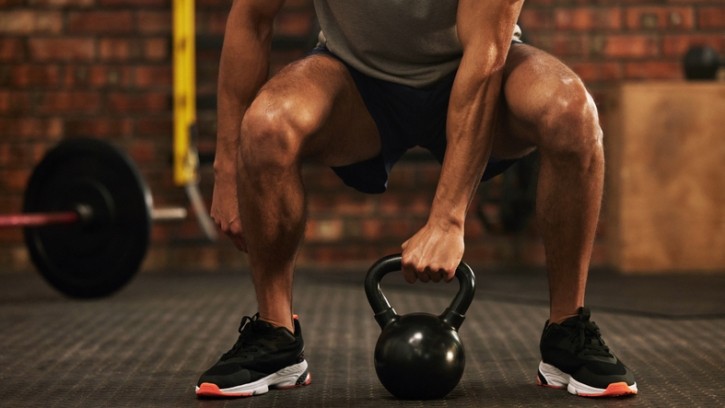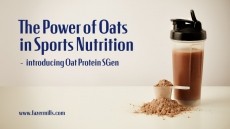Gelita’s collagen peptides improve muscular stress post-exercise: Study

The study published in the journal Frontiers in Nutrition investigated the effect of supplementation with either 15 g of Gelita’s SCP or placebo (PLA) daily for 12 weeks in 55 male volunteers participating in concurrent training.
Assessment of recovery-related blood biomarkers showed that SCP supplementation had a positive effect on the early phase of muscular recovery.
“The results suggest improved regenerative capacity within 48 h after muscle damage-inducing bouts of drop jumps,” the authors from Austria and Germany concluded.
Tendoforte has been found to strengthen ligaments and tendons, and PeptEndure has been observed to promote adaptive changes in mitochondria, increasing endurance levels.
“What's particularly exciting is that the Bioactive Collagen Peptides (BCP) formulations used in this study, Tendoforte and PeptEndure, demonstrated their distinct functionalities,” said Oliver Wolf, marketing EMEIA at Gelita.
Eccentric exercise and blood biomarkers
Some studies have shown that CP intake increases the restoration of biomechanical parameters and the upregulation of proteins associated with skeletal muscle fibers, suggesting its potential role in enhancing muscle adaptation. Yet, as the authors of the new study note, "recovery should be confirmed by specific blood parameters" to confirm SCP efficacy.
Proteins and metabolic-related enzymes such as creatine kinase (CK), lactate dehydrogenase (LDH), myoglobin (MYO), alanine transaminase (ALT), c-reactive protein (CRP) and interleukin-6 (IL-6) have been considered metabolic indicators of muscle damage and inflammation.
Exercise causes these biomarkers in serum blood to peak within the following days yet prior research into the effect of CP on recovery-related blood markers remains in the preliminary stages. The current study aimed to fill this knowledge gap.
Collagen peptide supplementation
Volunteers participated in concurrent training intervention three times a week for 12 weeks, consisting of lower body weight exercises and cardio exercises.
They were administered either Gelita’s SCP (10 g PeptEndure and 5 g Tendoforte) or a placebo daily and performed 150 muscle-damaging drop jumps before and after supplementation.
Blood samples were collected to measure CK, LDH, MYO and high-sensitivity C-reactive protein (hs-CRP) before, straight after and at 2 h, 24 h and 48 h post-exercise.
Results showed that SCP supplementation in combination with a concurrent training intervention resulted in reduced acute muscle stress response and improvements in early phase recovery. These results were represented by significantly lower levels of MYO, CK and LDH after a second bout of muscle damage-inducing exercise.
“Prolonged SCP intake was shown to ameliorate several cell damage markers and have a beneficial effect on muscle stress response, early-phase muscle recovery and enhanced repeated bout effect (RBE),” the authors concluded.
“Therefore, SCPs, together with training, may accelerate repair and reduce cellular damage to the force-producing and transmitting tissues in the first 48 h after eccentric exercise.”
Repeated bout effect is a mechanism that protects tissues involved in muscle-lengthening exercise execution from subsequent damage. It is attributed to neural adaptations, extracellular matrix remodeling, adaptations at the muscle-tendon junction and inflammation, however, the mechanism is still not fully understood.
The authors suggest that future research investigate the underlying molecular pathways of myocellular and ECM adaptation after intense muscle-damaging exercises, as this "may reveal specific target mechanisms affected by SCP intake that could be of significant practical importance in reducing rehabilitation and recovery time and improving RBE".
Journal: Frontiers in Nutrition
doi: doi.org/10.3389/fnut.2024.1384112
“Reduction in systemic muscle stress markers after exercise-induced muscle damage following concurrent training and supplementation with specific collagen peptides – a randomized controlled trial.”
Authors: Bischof, K. Et al.











